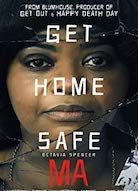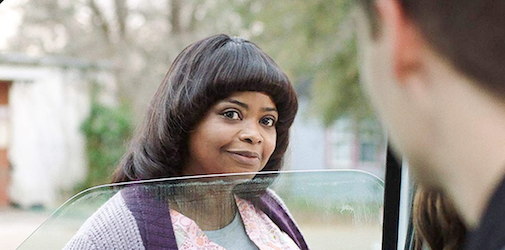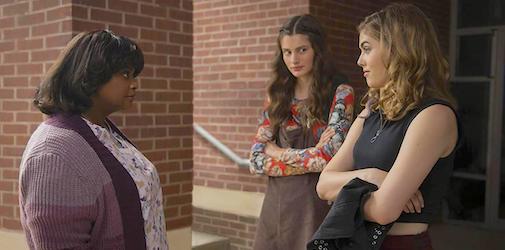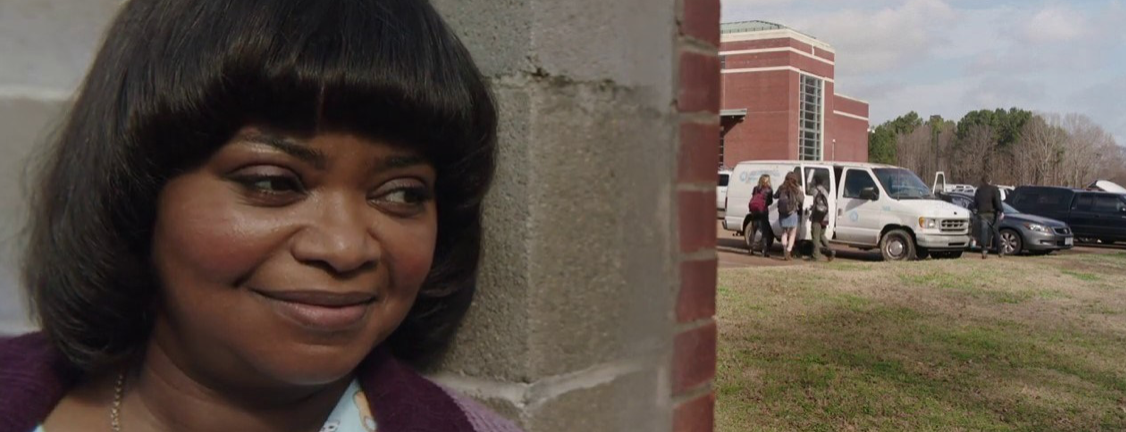by Sean Donovan
 In an age where critics praise a generation of thoughtful, innovative, and dazzlingly styled horror films, a deceptively basic package like Ma --unconcerned with winning good reviews, elevating the genre, or acquiring a fancy boutique label like A24 -- is uniquely refreshing. Ma’s jump scares are familiar, its plotting is predictably iffy, its logic and emotional contexts for its supporting characters even more so- but goddamn it, it’s fun.
In an age where critics praise a generation of thoughtful, innovative, and dazzlingly styled horror films, a deceptively basic package like Ma --unconcerned with winning good reviews, elevating the genre, or acquiring a fancy boutique label like A24 -- is uniquely refreshing. Ma’s jump scares are familiar, its plotting is predictably iffy, its logic and emotional contexts for its supporting characters even more so- but goddamn it, it’s fun.
The ‘fun’ comes from feeding off the joy of Octavia Spencer inhabiting domestic horror-thriller, Hand That Rocks the Cradle realness. No longer is Spencer smiling on a gilded stage, frozen while Peter Farrelly and Nick Vallelonga accept prizes for socially regressive trash to which she’s somehow attached. Octavia’s back baby, and this time she’s got hell to raise and teens to terrify....
And it’s Ma’s resolute ‘everydayness’ that gives the movie a surprising lingering resonance.
(minor spoilers in the review)

Maggie Thompson (Diana Silvers, Booksmart) moves with her mother Erica (Juliette Lewis) back to her mom’s hometown where she quickly becomes acquainted with a horror genre-standby, the unlikely group of friends: party girl Haley (McKaley Miller), sensitive Andy (Corey Fogelmanis), drunken ringleader Chaz (Gianni Paolo), and Darrell (Dante Brown), who isn’t given much of a character besides being the only non-white one of the group. Looking for an adult to buy them alcohol, the gang finds a supposed savior in the lonely Sue Ann (Spencer), nickname 'Ma,' who is not only fully willing to be their supplier, but also offers her cozy basement as a space for all-night partying. That beats their increasingly cop-patrolled usual hangout, a kind of quarry called ‘The Rockpile,’ another weirdly familiar inclusion from the canon of cliché teen movie details. But Sue Ann’s generosity comes with unforeseen strings attached, as she sinks her claws into the teenagers’ lives more and more.
And hold on, why does Sue Ann have a history with all the teens’s parents? What diabolical plan is at work here? Ma has a ball teasing these plotlines along, helped by flashbacks to a very costumey vision of the 1980s that is buoyed by the fine performance of Kyanna Simone Simpson as younger Sue Ann, and the emotional through-lines Spencer shades well into the present. Not to give anything away, but suffice it to say Sue Ann’s journey is Carrie from the perspective of a young woman of color, minus the superpowers.

It is very apparent that Ma, the character but more importantly the film, hates teenagers. Right up top there are two quick gay panic jokes, one from Andy and one from Haley, openly gay director Tate Taylor’s first indication of the social violences that reveal themselves as the primary subject of the film. It's also the first means of distancing the viewer from the teenagers that are supposedly our protagonists. In Ma teenagerdom is hell, and the punishment is an eternity spent with the same assholes you knew in high school.
Sue Ann’s history of social exclusion leads her to both fear and covet the world of hard-partying teenage rebels, her trauma enacting itself in more and more Gothic manifestations. That’s why the soundtrack is ‘out of time’- the teenagers strangely living it up to “Funky Town” and “Kung Fu Fighting” as Sue Ann attempts to overcome one generation of teenage cruelty via another. Earth Wind & Fire’s “September” is also used, in a particularly funny bit of bleak comedy with Missi Pyle as the adult version of one of Sue Ann’s bullies. Pyle has been in worse movies than this and is well-experienced in going-for-broke and having fun with limited material; her cardboard cruelty and dim self-absorption is perfect. Juliette Lewis, stranded in Ma’s least effective scenes, is less successful, mainly due to her utter lack of chemistry with her on-screen daughter.

When Ma finally heats up to an almost torture porn level of horror, the gear change is abrupt and unconvincing, motivated more by our immense desire to see Sue Ann fully unleash hell than anything within the text. The inclusion of a munchausen-by-proxy subplot is also ill-supported, lacking the screen-time or pointed writing to flow with the rest of the film, feeling unfortunately like a disrespectful reference to a shiny mental illness ‘of the moment,’ chasing its depictions in prestige drama series like Sharp Objects and The Act. But all the same, something miraculous happens in Ma’s turn to outright horror, particularly with Octavia Spencer. Set free in the wildness of horror movie villain glamour, Spencer shines and unleashes a well of pent-up anger, anxiety, and madness that we rarely see from her. The film’s quiet but impactful depiction of growing up of color in a white-dominated town reaches a crystalline zenith in Sue Ann’s late-in-the-film interactions with the aforementioned ‘black friend’ Darrell. Brilliantly calling out the film’s structure of tokenization (and Hollywood’s as a whole), Sue Ann coos “There’s only room for one of us” as she paints his face white. Ma is messy and uneven, as run-of-the-mill horror films often are, but it gives voice to a specific form of trauma, in a brash genre vocabulary that renders its expression cathartic, fun, and appropriately worshipful of a divine Octavia Spencer star turn. B+